What You Need To Know About Soursop: The Top7 Amazing Health Benefits of Graviola
Graviola: 7 Amazing Health Benefits of Soursop
Overview
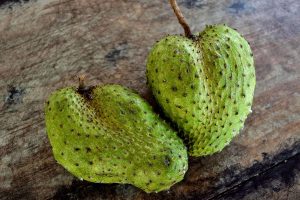
Soursop fruit is particularly valued for its excellent nutritional profile and wide-ranging health benefits. It contains magnesium, potassium, iron, calcium, folate, niacin, thiamine, and riboflavin, along with plentiful amounts of fiber and vitamin C. Apart from these micronutrients, soursop also packs a wide variety of disease-fighting phytochemicals.
What is soursop: history and traditional uses
Soursop is a large heart-shaped, prickly-looking, green fruit that goes by different names in different parts of the world: guanabana, cherimoya, guyabano, Brazilian pawpaw, and custard apple. Its dark green color turns lighter when it ripens. Cutting it in half reveals a soft white flesh that is juicy and fibrous. Its taste is described as having hints of pineapple, banana, and strawberry.
The most common way to consume soursop is to eat fresh fruit, but people also enjoy it in smoothies, ice creams, beverages, juices, and syrups. Leaves are also used in cooking and for making a healing tea or decoction. A paste made from leaves can also be applied topically for healing scars, soothing skin irritations, and alleviating pain and swelling.
In folk medicines, soursop has been used as a natural remedy for mild fever, inflammation, arthritis, bacterial infections, headaches, abdominal pain, and digestive problems. Research has supported many of these traditional claims.
The popularity of Graviola has increased manifold in recent years, as more and more people are now looking to improve health through nutrition. Some recent studies have reported that soursop fruit and leaves may have anti-cancer properties.
7 health benefits of soursop
1. Prevents and heals cancer
Graviola is most commonly known and used for its ability to kill cancer cells. It contains acetogenins – a unique class of bioactive compounds that are found exclusively in two plant families, the custard apple family being one of them.
Acetogenins have been extensively researched for their role in cancer treatment. Annonaceous acetogenins (AGEs) derived from soursop fruit and leaves are being explored as a potential chemotherapy drug due to their multiple cytotoxic mechanisms. Studies have found that soursop can choke the blood supply of cancer cells, inhibit their rapid multiplication, and induce apoptosis in them.
In lab and animal studies, it was able to kill cancerous cells of the pancreas, lung, colon, breast, liver, and blood. In one study, soursop was able to prevent the migration and invasion of colon cancer cells. Acetogenins are promising because they have shown high toxicity against tumors that are resistant to other chemotherapy drugs.
Graviola has been tested mostly on animal and cell models. More research is needed to understand its effect on human cancer cells. The US FDA has not approved its therapeutic use for cancer or any other condition. Some studies have even found acetogenins found in soursop to damage brain cells when used repeatedly.
2. Good source of collagen-boosting vitamin C
Graviola fruit is packed with vitamin C, with just one cup providing over half of your daily recommended amount. Vitamin C plays an essential role in fighting infections and healing wounds. Our body needs vitamin C to make collagen – a structural protein that gives strength and rigidity to blood vessels, cartilage, skin, bones, and connective tissues.
Collagen makes up about 30% of the body’s proteins. It is also important for maintaining skin elasticity and hydration. Loss of collagen is responsible for premature wrinkles and hair greying. Including collagen-boosting soursop in your diet may help strengthen the skin barrier, improve skin texture, reverse premature skin aging, and improve cell regeneration.
3. High in antioxidants
Graviola contains high amounts of plant antioxidants like flavonoids, tannins, saponins, quercetin, anthraquinones, and phytosterols. Antioxidants help neutralize free radicals – a type of unstable oxygen molecule that reacts with cells and proteins, damaging them and increasing the chances of cell mutation. Free radicals are naturally produced inside the body as a toxic by-product of metabolism. Over time, they damage vital organs and accelerate the aging process.
According to a 2015 study, soursop can protect DNA and tissues by scavenging free radicals and has immense healing potential. Including fresh fruit in your diet can slow down cell aging, reducing the risk of various chronic diseases like diabetes, heart disease, cancer, rheumatism, and brain aging.
4. Reduces pain and inflammation
Soursop fruit, leaves, bark, and root have been used for centuries in traditional African medicine as a natural remedy for arthritic pain and nerve pain. Numerous studies have found soursop to possess powerful anti-inflammatory and analgesic properties. According to a 2014 study, soursop soothes inflammation of connective tissues, reduces muscle spasms, and sedates the nervous system.
Another study found Graviola leaves effective in reducing both acute and chronic types of inflammation. It suppresses pro-inflammatory cytokines and blocks the detection of pain signals, thus acting like a natural pain killer. Researchers suggested that the leaves and fruit of this plant are helpful in acute nociceptive pain – the kind of pain you feel from tissue injuries, burns, bruises, or arthritis. A decoction made from leaves can also be applied topically for a similar analgesic effect.
5. Helps fight microbial infections
Studies have found soursop to have antiviral, antibacterial, antifungal, antiseptic, and antiparasitic properties that can help with common infections.
According to a 2016 study, soursop leaves can help fight infections caused by several pathogens commonly encountered in daily life. It was found to be particularly effective against Streptococcus mutans and Candida species – bacterial and fungal species that are responsible for dental caries and yeast infections, respectively. A 2012 study found soursop effective against the herpes simplex virus.
Please keep in mind that these studies were conducted on isolated models and used extremely high concentrations of soursop, which is neither safe nor possible to get through diet. Yet this shows that soursop leaves and fruit extracts are effective against microbes and may be developed into a targeted drug. Taking small amounts in diet may also help discourage the growth of pathogens and reduce inflammation, thus making medicines work faster.
6. Improves blood sugar control
Graviola is an excellent source of dietary fiber, which makes it a perfect addition to a diabetes-friendly diet. Fiber helps in slowing down the digestion of food and thus helps stabilize blood sugar levels, controlling sugar cravings and overeating. Moreover, it contains disease-fighting flavonoids and quercetin compounds that are well-known for their anti-diabetic and anti-inflammatory effects.
A recent study has shown that soursop fruit pulp and leaf can inhibit certain key enzymes that are involved in the conversion of carbohydrates and starch into sugars. Suppression of these enzymes reduces the intestinal absorption of glucose and improves glucose metabolism, thus helping lower sugar levels.
In a 2008 animal trial, daily administration of soursop lowered blood sugar levels of diabetic rats by up to five times in just two weeks.
7. Improves digestive health
One cup of fresh soursop fruit provides approx. 7.4 grams of fiber. According to the USDA, most Americans fall short of their daily fiber recommendations. Fiber is
Eating this tropical fruit can also help control gut inflammation by removing metabolic wastes trapped along the intestinal walls, thus helping with conditions like IBS and ulcerative colitis. According to a 2022 study, Graviola fruit, leaves, and bark may help in treating diarrhea, ulcers, gut inflammation, and gastric lesions. A soothing tea made from leaves or bark has also been found effective in indigestion and abdominal pain.
Safety and possible risks
Seeds of soursop are toxic for the brain, as they contain a compound called annonacin that increases the risk of Parkinson’s disease.
Other parts of this plant, including the fruit, pulp, leaves, and bark, are edible and generally considered safe for human consumption. However, eating too much soursop, or eating soursop for a long time, has been known to cause nerve damage that may lead to serious nervous system disorders. Its long-term use is also known to negatively impact kidney and liver functions.
If you are taking medications for diabetes or high blood pressure, consider speaking to your doctor before including soursop in your diet.
There is insufficient evidence to suggest its effect on fetus health, and pregnant mothers should avoid eating this fruit unless recommended otherwise by an expert.
Final thoughts
Soursop contains a wide variety of micronutrients and antioxidants that can boost health and immunity in many ways. Leaves and fruits of this plant have been found effective in reducing arthritic pain, lowering blood sugar levels, controlling microbial infections, and improving digestive health. Evidence also suggests that Graviola may help prevent tumor formation, reduce the growth of cancer cells, and improve healing in cancer patients. But research in this area has been limited to test-tube models. Large-scale human studies are needed to confirm its efficacy in cancer treatment.
As the saying goes, excess of everything is bad. The same is true for this medicinal fruit as well. It is best to enjoy soursop in its fresh, raw form, as supplements may contain high doses. In any case, please make sure to speak to your doctor about recommended dosage and safety. And remember always to, “ Do Something Everyday That Heals Your Body!”
To Your Health!
References
https://www.ncbi.nlm.nih.gov/pmc/articles/PMC4375238/
https://pubmed.ncbi.nlm.nih.gov/20162043/
https://pubmed.ncbi.nlm.nih.gov/24076471/
https://www.ncbi.nlm.nih.gov/pmc/articles/PMC4259190/
https://www.ncbi.nlm.nih.gov/pmc/articles/PMC5198446/
https://www.ncbi.nlm.nih.gov/pmc/articles/PMC4519917/
https://www.ncbi.nlm.nih.gov/pmc/articles/PMC6091294/
https://www.sciencedirect.com/science/article/pii/S1995764514602583

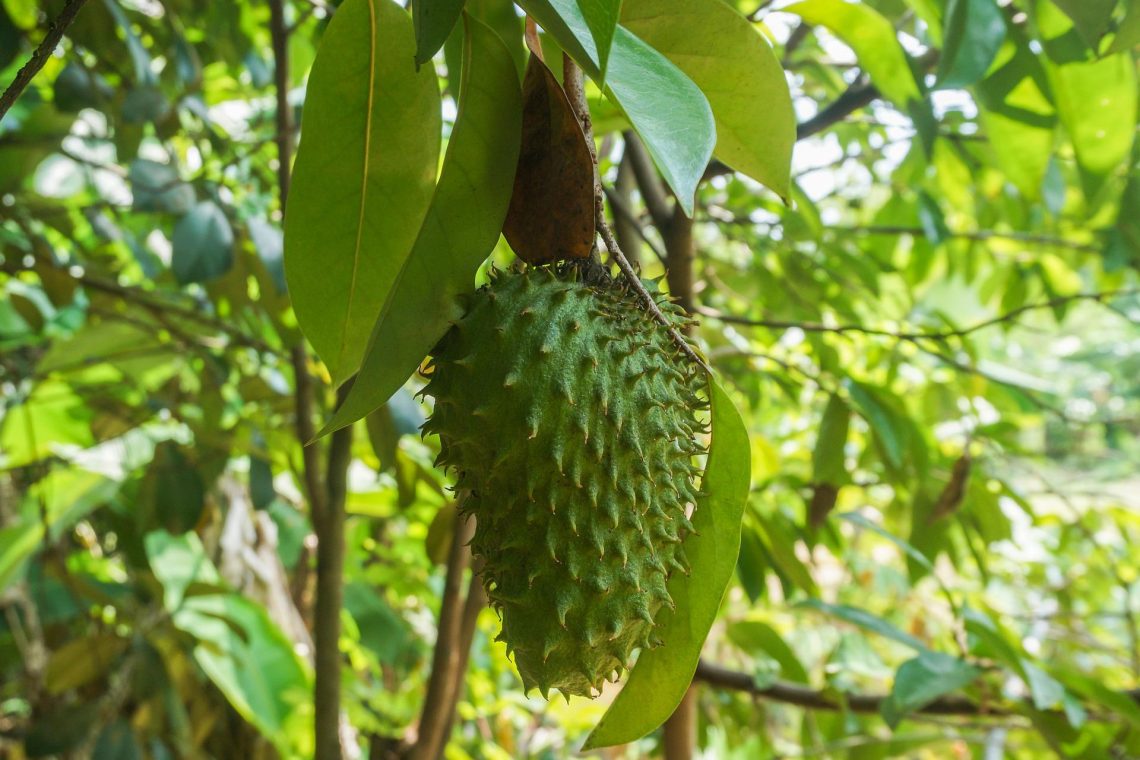
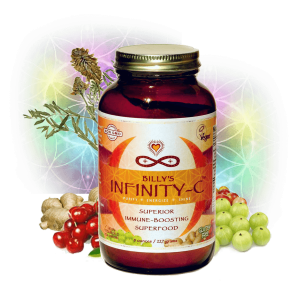



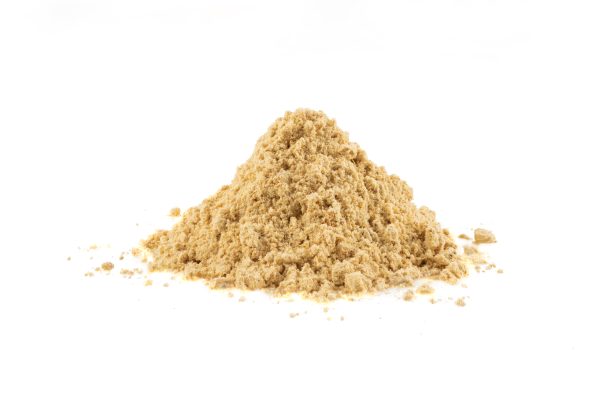






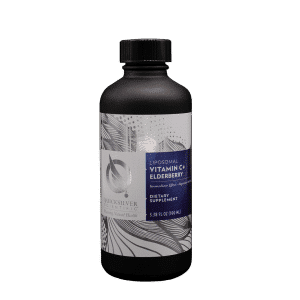













0 Comment